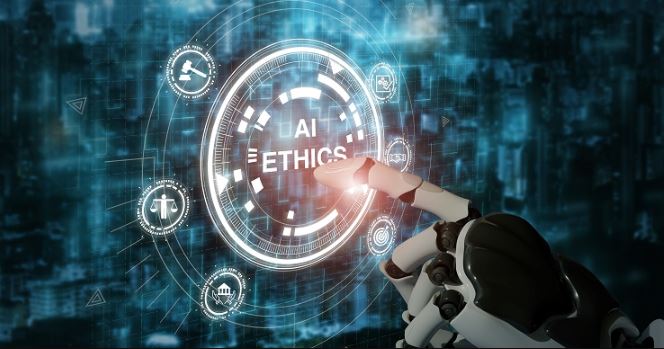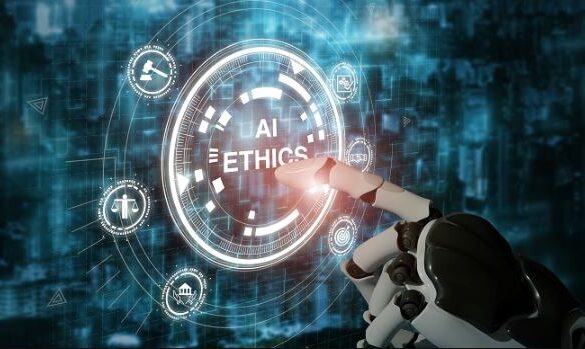Artificial Intelligence (AI) is transforming industries, improving efficiency, and enabling groundbreaking innovations. However, with this power comes responsibility. The adoption of AI raises important ethical questions about fairness, transparency, accountability, and its broader impact on society. Understanding the ethical challenges of using AI is essential for governments, businesses, and individuals to ensure that AI benefits everyone fairly.
The Importance of Ethics in AI
AI systems are only as good as the data and design choices behind them. Without proper safeguards, they can amplify inequality, invade privacy, or make harmful decisions. Ethics provides a framework to guide responsible AI development and deployment.
Key Ethical Challenges of Using AI
1. Bias and Fairness
-
The Problem: AI systems learn from historical data, which may contain biases. This can lead to discrimination in hiring, lending, policing, or healthcare.
-
The Impact: Marginalized groups risk being unfairly treated.
-
The Solution: Diverse datasets, fairness audits, and ongoing monitoring.
2. Transparency and Explainability
-
The Problem: Many AI models, especially deep learning, function as “black boxes,” making decisions without clear explanations.
-
The Impact: Users and regulators struggle to trust AI-driven outcomes.
-
The Solution: Developing explainable AI (XAI) and clear accountability standards.
3. Privacy Concerns
-
The Problem: AI relies on massive amounts of personal data. Facial recognition, voice assistants, and predictive analytics can all threaten privacy.
-
The Impact: Individuals may lose control over their personal information.
-
The Solution: Stricter data protection laws and privacy-by-design approaches.
4. Accountability and Responsibility
-
The Problem: Who is to blame if an AI system makes a harmful decision—the developer, the company, or the AI itself?
-
The Impact: Legal systems struggle to assign responsibility.
-
The Solution: Clear governance policies and AI accountability frameworks.
5. Impact on Employment
-
The Problem: AI-driven automation is replacing human jobs in manufacturing, logistics, and even white-collar industries.
-
The Impact: Job displacement, economic inequality, and skill gaps.
-
The Solution: Reskilling programs and policies that prepare workers for an AI-driven future.
6. Security Risks
-
The Problem: AI can be misused for cyberattacks, deepfakes, or autonomous weapons.
-
The Impact: Threats to democracy, security, and global stability.
-
The Solution: International regulations and ethical AI usage agreements.
7. Human Autonomy
-
The Problem: Over-reliance on AI can reduce human decision-making and independence.
-
The Impact: Risk of manipulation through recommendation algorithms and misinformation.
-
The Solution: Keeping humans “in the loop” for critical decision-making.
Balancing Innovation with Responsibility
AI innovation must go hand in hand with ethical considerations. Striking the right balance ensures that technology benefits society without creating new risks. Governments, companies, and researchers must collaborate on guidelines that enforce fairness, accountability, and transparency.
Conclusion
The ethical challenges of using AI highlight the tension between technological progress and societal responsibility. Issues like bias, privacy, accountability, and employment require careful attention. By addressing these challenges proactively, we can harness the power of AI while minimizing risks and ensuring a fairer, more trustworthy digital future.





